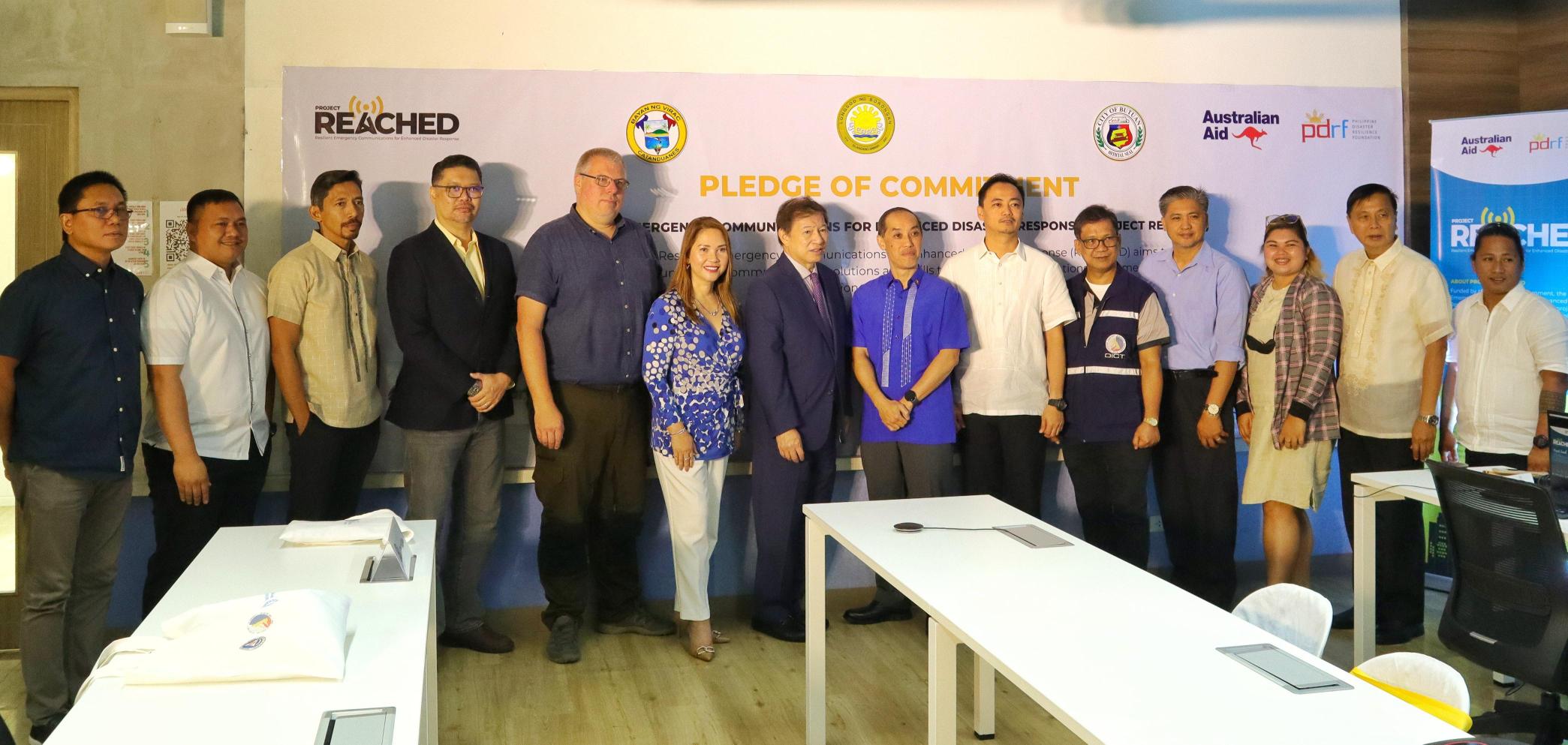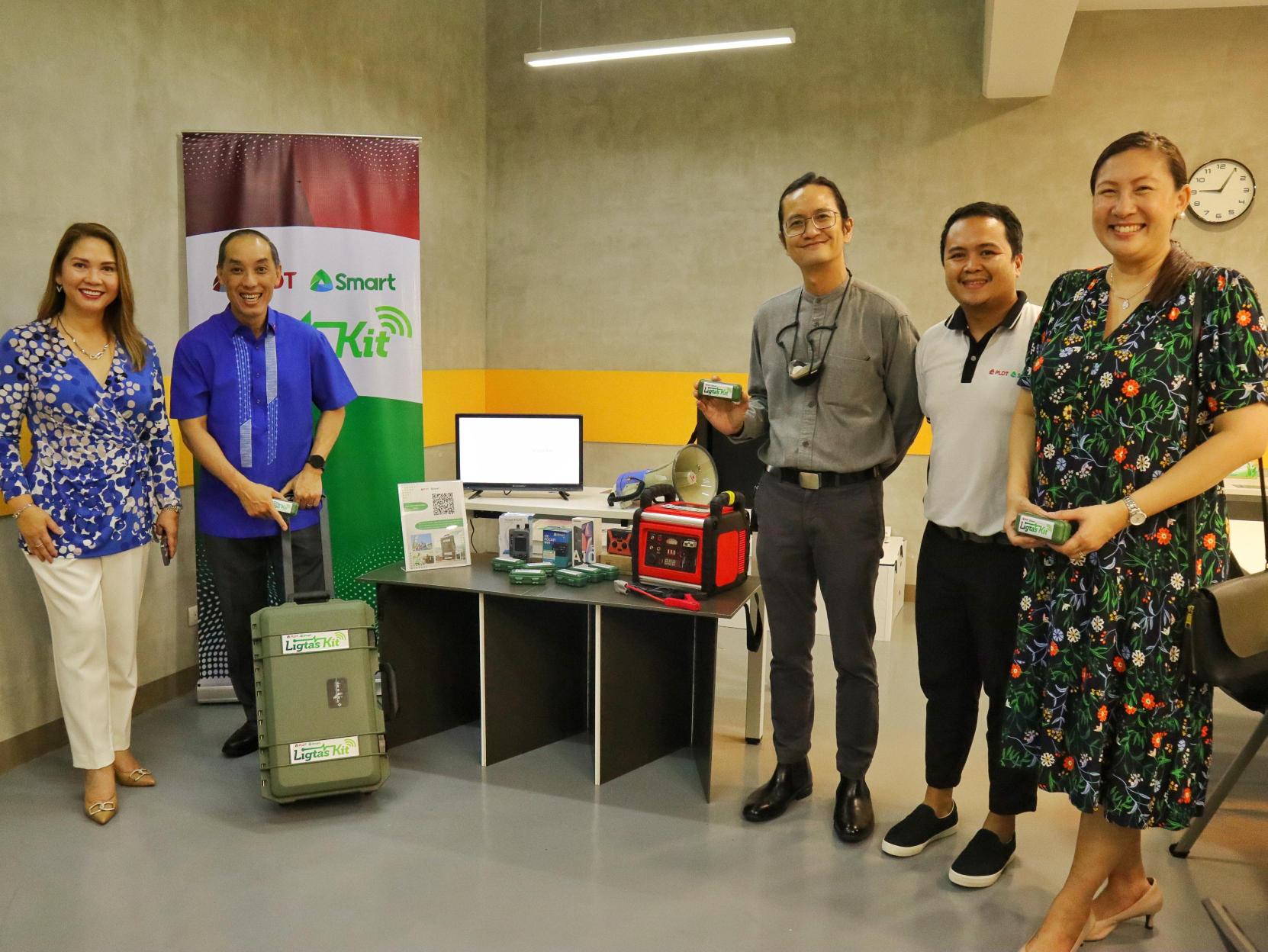PLDT, Smart to assist Project REACHED
Project REACHED is an initiative of the Philippine Disaster Resilience Foundation (PDRF) and the Australian Embassy in the Philippines
PLDT and Smart are supporting Project REACHED, an initiative of the Philippine Disaster Resilience Foundation (PDRF) and the Australian Embassy in the Philippines, as part of the PLDT Group’s commitment to building a disaster-resilient Philippines.
Project REACHED, or Resilient Emergency Communications and Enhanced Disaster Response, is a two-year program that aims to bridge communication gaps during emergencies or disasters.

“The PLDT Group recognizes the vital role of communication during emergencies and disasters, which has now become a lifeline,” said PLDT and Smart Head of Stakeholder Management Team Stephanie V. Orlino.
She noted that, “as network operators, we at PLDT and Smart are in a unique position to provide communications support before, during, and immediately after disasters.”

PLDT and Smart will extend technical expertise in the field of communications to contribute to accelerating the goals of Project REACHED.
A multi-sectoral collaboration, the Department of Information and Communications Technology, Office of Civil Defense, and the World Food Programme are also committed to this project, among others.
“Witnessing the amount of damage the recent typhoon Egay caused to northern and central Luzon has reminded us of how critical telecommunications are during disasters. May Project REACHED lead to keeping Filipino communities safer,” said PDRF President Butch Meily.
The Australian Government, through PDRF, vowed to strengthen the resilience of selected localities with vital communication equipment and capacity development.
Among those selected were Virac in Catanduanes, Borongan in Eastern Samar, and Butuan in Agusan del Norte based on factors contributing to their overall competitive index resilience score.
Underscoring one of the key priority areas identified by the Australian Government in the Philippines, Counsellor for Development Thanh Le echoed the importance of having a resilient emergency communications network especially during disasters.
“By investing in resilient emergency communications, we can save countless lives and prevent vulnerable communities from experiencing even more difficulties and hardships,” Thanh Le said.
PLDT and Smart Head of Network Field Services for Luzon Ronald Miranda said, “we are here to support our partners to establish, operate, and maintain alternative communications facilities that prove to be invaluable tools when the worst of disasters unexpectedly hit our communities.”
He added that, “PLDT and Smart shall continue to provide LGUs technical guidance and other advice whenever needed.”
This initiative is part of the Group’s #SafeandSmart advocacy which promotes preparedness and immediate response through continuous availability of communication services, mobile solutions and activities to help communities mitigate disaster risks.
This is also aligned with the United Nations’ Sustainable Development Goal#11: Sustainable Cities and Communities.